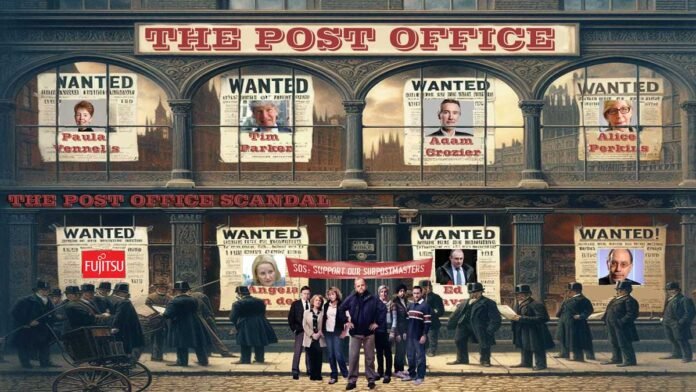Long read warning: Just touching the tip of a very slippery iceberg…
In Pursuit of Justice: Unmasking the Enablers of the Post Office Scandal
By Paul Knaggs
A web of corruption, conspiracy, and callousness sits at the heart of the Post Office Horizon scandal. This staggering miscarriage of justice, the largest in UK history, reveals an establishment that ruthlessly sacrificed integrity for profit and reputation.
Over 700 innocent sub-postmasters suffered wrongful prosecution between 1999 and 2015 after flaws in the Horizon IT system falsely suggested missing funds. Yet those responsible have faced minimal consequences, many even rewarded with lucrative new roles.
This institutional complicity concealed Horizon’s defects to avoid admitting error, prioritizing corporate image over shattered lives. An ethos of denial and deception presided, enabling a culture where pursuit of the blameless took priority over honest investigation.
From greedy executives to negligent ministers, the profiteers of this insidious scandal remain largely unrepentant and unpunished. Sacrificing decency for personal gain.
Such deep corruption mocks justice and demands complete transparency. Until all who played a role in this shameful chapter face accountability, the suffering of victims will continue unabated. This conspiracy must be confronted in full.
As pressure builds the public demand justice. The Post Office scandal must confront all the enablers as well as leaders. A culture that prosecuted rather than investigated. Until all who played a role are held responsible, justice will remain elusive for the victims.
While innocent people had their lives ruined, those at the top of the Post Office walked away unscathed or even rewarded. But the public inquiry now aims to hold accountable those who allowed this injustice to occur on their watch. The line-up constitutes a rogue’s gallery of individuals who failed in their duties while profiteering from victims’ misery.
This conspiracy of injustice demands complete transparency, not damage limitation. The innocent suffered while the powerful prospered.
All those whose acts or neglect enabled the scandal must face consequences. Only then can lessons be learned to prevent any repetition of this shameful chapter.
Paula Vennells
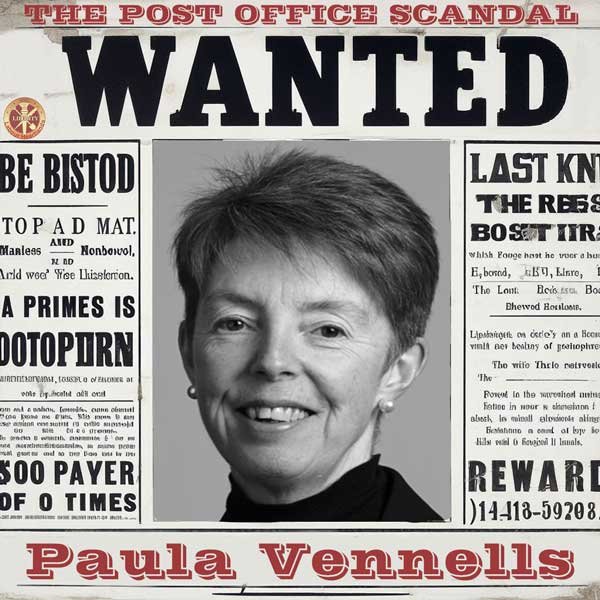
At the top sits Paula Vennells. She was awarded the CBE in the 2019 New Year Honours List for services to the “Post Office and to charity” but faced mounting pressure for it to be revoked after TV drama Mr Bates vs The Post Office gave an insight into the Horizon scandal.
Ms Vennells is thought to have earned as much as £5million in her role as Post Office boss and is now facing calls to return £2.93million in performance-related perks and payments in lieu of pension.
Campaigner and former sub-postmaster Chris Trousdale said Ms Vennells should be “stripped of her wealth, pension and reputation, just like the sub-postmasters were”.
“The execs’ bonuses, their pensions and their pay were based on figures inflated by victims’ money,” he said, according to the Mail.
“It’s disgusting that our money ended up directly in the pockets of bigwigs like Paula Vennells who are now living lives of luxury.”
After immense public pressure, former Post Office CEO Paula Vennells has agreed to hand back the CBE honour she received in 2019. Vennells presided over the Horizon IT scandal that saw hundreds of sub-postmasters wrongly prosecuted between 1999 and 2015.
Her right-hand woman Angela Van Den Bogerd also sought to mislead the courts. Yet she remained in her Post Office job arranging HR compliance until 2020.
Angela Van Den
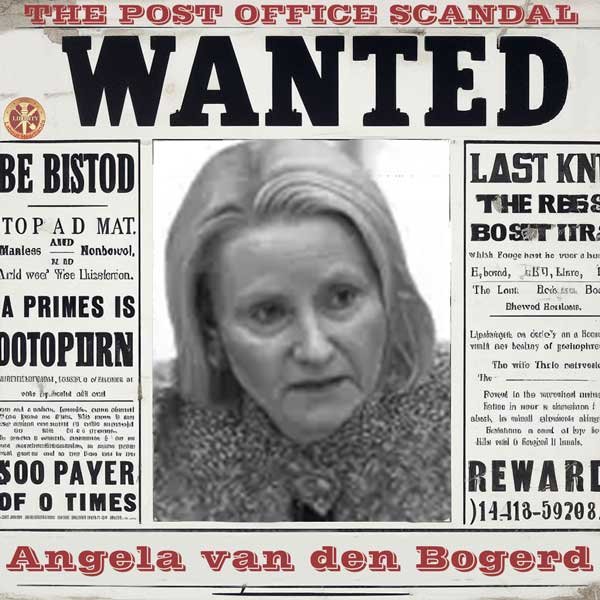
Vennells’ bonus-rich reign of injustice casts shame on the whole Post Office executive. Some, like Angela Van Den Bogerd, misled courts to protect Horizon.
The Honourable Mr Justice Fraser said that “Mrs Van Den Bogerd appears entrenched in her refusal to what I consider to be the obvious common themes connecting all these claims, and I simply cannot understand this”.
He later added: “There are two specific matters in which I find that she did not give me frank evidence, and sought to obfuscate matters, and mislead me.”
The judge noted that she was a “a very clever person” but had a “disregard for factual accuracy”. Mr Justice Fraser added that he would only accept that she was being truthful if she was “clearly and incontrovertibly corroborated by contemporaneous documents”.
Mrs Van Den Bogerd remained in her job until May 2020 before briefly working for the Welsh FA as its head of people.
Mr Justice Fraser said “she did not give me frank evidence and sought to obfuscate matters, and mislead me”.
Ms van den Bogerd left the Post Office in 2020 for a job as head of people at the Football Association of Wales.
However, just a year later, she left after the departure of its chief executive following a no-confidence vote.
At the time, sources at the Welsh FA told the BBC its ruling council had voted to get rid of her due to unease over her role at the Post Office.
Tim Parker
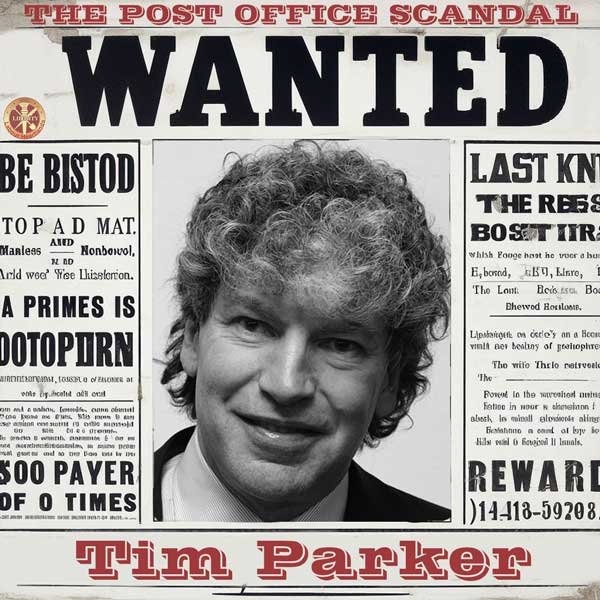
While Van Den Bogerd was hounding postmasters, chairman Tim Parker was busy building his £200 million fortune. The so-called “Prince of Darkness” let the persecution continue, prioritising profits over people.
Branded the “Prince of Darkness” by trade unions after cutting thousands of jobs in a previous role as the chief executive of the AA, he once reportedly turned up at an old shoe-making factory in a Porsche to announce job losses.
Now worth more than £200 million, Mr Parker was appointed to his first chief executive role at the age of just 26 and later went onto Clarks Shoes where he shut 20 factories but transformed the company’s profits.
Oxford-educated Mr Parker has also led Kwik Fit and the AA after they were taken over by private equity and he briefly served as first deputy mayor of London under Boris Johnson.
While he gave his £75,000-a-year salary at the Post Office to charity, Mr Parker did nothing to halt the plight of the postmasters and allowed his chief executive to pursue the strategy of aggressively pursuing them through the courts.
Speaking when he was appointed in 2015, Parker said he was attracted to the Post Office by its “strong social purpose” and compared the role with his chairmanship of the National Trust.
He continued in the role until 2022, a year after he quit the National Trust amid complaints from some members of wokeness.
In 2020, Mr Parker said he was “sincerely sorry” on behalf of the company for its “historical failings”. “Post Office is resetting its relationship with postmasters with reforms that prevent such past events ever happening again,” he added.
Richard Christou

Richard Christou was the UK chief executive of Fujitsu from 2000 to 2004 and has boasted about the success of Post Office contracts.
The businessman, who continued work with the tech company for three years as chairman after stepping down as boss, noted that the Pathway project which led to Horizon was “most profitable”.
In 2019, he spoke of his pride at the company’s work on Horizon. He had worked for International Computers Limited before it became Fujitsu and speaking. about his career with the Worshipful Company of Information Technologists, said he saved the company.
He also said his involvement in the negotiations on the Pathway Project was among his proudest achievements, adding: “I did that, nobody else did, and it was not a legal issue, this was negotiation. They still have the contract, twenty-five years later, and it’s been their most profitable.”
He now lives in Lisbon, Portugal, and continued to advise Fujitsu until 2021.
Richard Christou of Fujitsu, Horizon’s architect, boasted of the system’s “profitability” even as it created fictional losses. He and chief engineer Gareth Jenkins provided dubious testimony used to prosecute the innocent.
Gareth Jenkins

Gareth Jenkins, a Fujitsu engineer, served as the chief architect of the Horizon computer programme, a pivotal component of the sub-postmaster scandal. His role extended to being an expert witness, providing testimony crucial to several postmaster prosecutions. However, concerns about the credibility of his testimony were raised in a report and evidence presented by Duncan Atkinson KC, an expert in criminal prosecutions.
Atkinson highlighted that Jenkins’ statement was applied uniformly to various cases by the Post Office, adopting a “one-size-fits-all” approach. Additionally, serious issues were identified with the Post Office lawyers altering statements related to the Horizon’s reliability, casting doubt on the admissibility of Jenkins’ expert testimony.
Jenkins submitted his initial expert witness statement in 2005 during the prosecution of Hughie Thomas, who faced imprisonment after admitting to false accounting. His only live court appearance occurred in the case of Seema Misra, a pregnant woman who was incarcerated.
Initially scheduled to appear before the public inquiry in May 2023, Jenkins’ testimony faced delays due to late document disclosures. Subsequent rescheduling attempts were hindered by additional document disclosures. As a result, Jenkins is now anticipated to testify no earlier than May 2024, during phase five of the inquiry.
Despite efforts by Jenkins and his legal team to secure immunity from prosecution, the Attorney General, Sir Wyn Williams, has twice rejected the request. Jenkins remains under police investigation for potential perjury.
Several Members of Parliament have urged Fujitsu to contribute to compensating Post Office staff. Work and Pensions Secretary Mel Stride indicated that if the inquiry concludes mistakes were made, Fujitsu might share the responsibility for compensation, emphasizing that the burden should not fall solely on taxpayers.
Fujitsu has expressed full commitment to supporting the inquiry to understand and learn from the events. The company has previously apologized for its role in the sub-postmasters’ suffering. Bosses from Fujitsu have been summoned by MPs on the business and trade committee, raising concerns about the firm securing significant public contracts despite the failure associated with the scandal.
Lib Dem leader Ed Davey
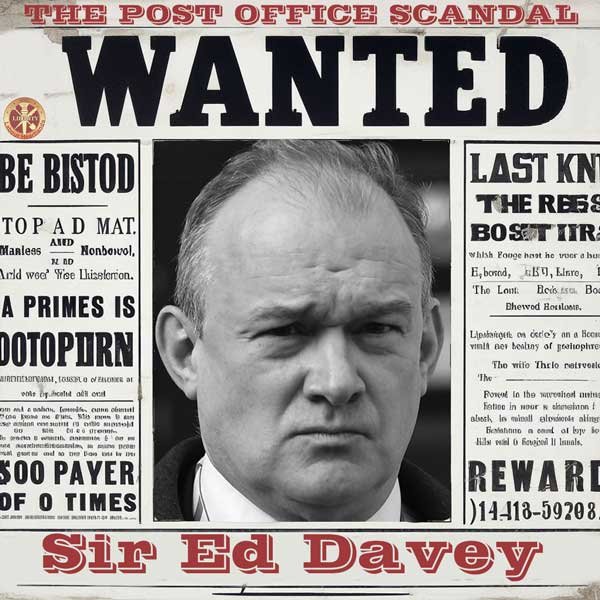
Why were ministers so oblivious? As a postal affairs minister in 2010, Lib Dem leader Ed Davey dismissed concerns.
And all this happened on Davey’s watch. For two years, from 2010 to 2012, he served as Postal Affairs Minister in the coalition government. This period coincided with the growing realisation that sub-postmasters had become victims of a terrible injustice perpetrated by the Post Office.
Flaws in the Post Office’s Horizon IT system caused unexplained financial losses in sub-postmasters accounts. Yet rather than investigating, the Post Office accused them of theft and false accounting, ruthlessly pursuing criminal prosecutions.
In May 2010, shortly after his appointment as Minister, Davey was contacted by Alan Bates, of the Justice for Subpostmasters Alliance (JFSA). Mr Bates, who had lost his own Post Office contract after questioning Horizon’s defects, pleaded with Davey to meet campaigners and hear their stories.
The correspondence also reveal Sir Ed was warned 12 years ago that legal action against the Post Office over the scandal could leave the taxpayer exposed to “astronomical” costs. Mr Bates warned him of the huge potential “financial liability” in a 2011 letter – one of at least five letters sent to Sir Ed between 2010 and 2012, according to the Sunday Times.
In December 2010, Mr Bates cut off contact for eight months after Sir Ed wrote him a letter saying the Post Office “continues to express full confidence in the integrity and robustness of the Horizon system”. In 2011, Mr Bates notified Sir Ed that solicitors acting on behalf of the campaign group had issued pre-action letters to the Post Office. He told Sir Ed: “Having nailed your colours to the POL’s [Post Office Ltd] mast from the JFSA standpoint there was little point in continuing a dialogue with you or your department at that point.”
Davey’s response was callous in the extreme. In a letter to Mr Bates, he bluntly stated: “I do not believe a meeting would serve any purpose.” The Minister washed his hands of an unfolding tragedy. Mr Bates recalls feeling Davey’s comments were “offensive.” At a time when lives were being ruined, the Minister could have intervened, yet chose not to.
Now, with the inquiry in full swing, Davey accuses Post Office bosses of misleading him over Horizon. He regrets not helping victims and claims executives blocked him from meeting JFSA. Crocodile tears now, but where was his compassion back then?
Ed Davey’s Payday: £275,000 from Legal Firm Involved in Post Office Scandal
Most damning of all is how Davey later personally profited from the scandal. In 2017, the year sub-postmasters launched group litigation against the Post Office, Davey became a highly paid consultant to law firm Herbert Smith Freehills (HSF). HSF were hired by the Post Office to aggressively fight the litigation.
For this work, Davey pocketed an astonishing £275,000 over five years, until January 2022. That’s £833 an hour for his services. So while sub-postmasters battled for justice, their former Minister who ignored them was now on the Post Office’s payroll by default.
Mr Bates expresses astonishment at Davey’s earnings from an organisation JFSA was fighting. He asks why Davey remains silent on his role in the scandal, rather than using his platform to demand justice.
The Lib Dems insist that when Davey took up his consultancy with HSF he had no knowledge of the Post Office connection. A spokesman for the party said: ‘Ed had no knowledge that HSF held this account and never had any conversations about the Post Office or Horizon scandal at any occasion with HSF.
Alice Perkins
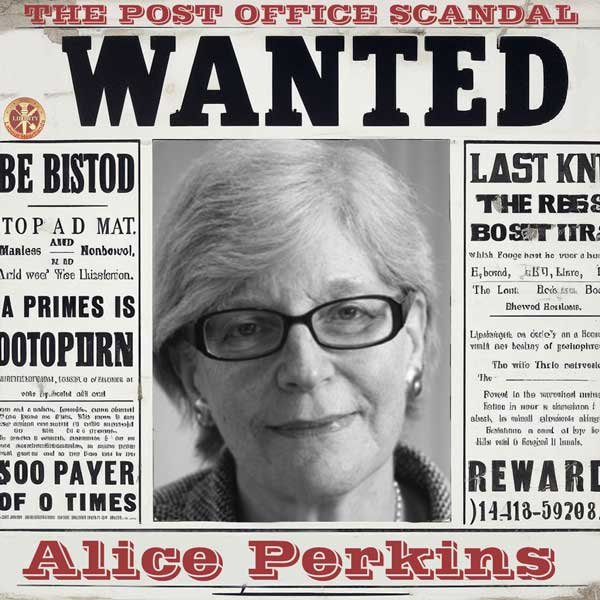
Director Alice Perkins, Jack Straw’s second wife, seemed too distracted by corporate initiatives as the scandal grew.
Alice Perkins was the £100,000-a-year chairman of the Post Office from 2011 until 2015 and the second wife of Jack Straw, the former Labour home secretary.
Problems with Horizon began long before Ms Perkins joined the Post Office but she took up her role as evidence was emerging that sub-postmasters were being wrongly prosecuted.
As chairman she was able to ask questions of the board as the scandal grew but her interests appeared to be on other issues.
Alongside Ms Vennells, Ms Perkins had a focus on making management more diverse with scorecards for gender, ethnicity and disability mix, and senior staff were trained to manage their unconscious bias when hiring. Executives were also preoccupied with the separation from Royal Mail.
Ms Perkins, a former civil servant, apologised in April 2021 for the “deep distress” caused by the scandal.
Adam Crozier

Most troubling, some figures have escaped scrutiny. Royal Mail’s CEO for 2003-2010, Adam Crozier.
Criticism Mounts Over Omission of Former Royal Mail Chief in Post Office Scandal Drama
Viewers of the ITV drama “Mr Bates vs The Post Office” have expressed dismay at the absence of mention regarding Adam Crozier, the former chief of Royal Mail, who later served as the CEO of ITV. The four-part series delves into the Post Office scandal, described by some as one of the largest miscarriages of justice in the UK, involving the wrongful prosecution of over 700 branch managers.
Adam Crozier, presently the chairman of BT, assumed the role of Royal Mail chief executive between 2003 and 2010, a period when the Post Office scandal unfolded. Viewers have questioned the exclusion of Crozier’s role in the ITV docudrama, with some labeling him the “real villain of the Post Office scandal.”
Social media responses reflected disappointment in the omission of Crozier from the narrative. Activist David Vance raised concerns, stating, “Meet Adam Crozier. He was CEO of Royal Mail between 2003-2010. Royal Mail owned the Post Office at this time. His name is not mentioned in the recent ITV docudrama. He was CEO of ITV after leaving Royal Mail. Mmm.”
Rob Boyd, another viewer, echoed these sentiments, questioning why Crozier was “completely omitted” from the portrayal of events. The call for Crozier to be mentioned in the ongoing inquiry into the Post Office scandal gained traction, emphasizing a perceived oversight in the dramatization.
Responding to the criticism, an ITV spokesperson clarified that “Mr Bates vs The Post Office” focused on portraying the scandal from the perspective of a select group of former subpostmasters led by Alan Bates, forming the Justice for Subpostmasters Alliance. The spokesperson emphasized that the dramatization highlighted Alan Bates’ campaign gaining momentum with the promotion of Paula Vennells to Chief Executive.
Adam Crozier’s professional journey includes successful leadership at Royal Mail, marked by notable financial transformations. However, during his tenure, prosecutions of innocent postmasters occurred. Crozier later served as the chairman of ITV, Whitbread (owner of Premier Inn), and ultimately joined BT with a basic salary of £700,000.
Crozier’s career faced challenges, including an incident during his appointment as chief executive of the Football Association in 2000, where he publicly apologized for falsifying sales figures during his earlier role as an advertising representative for The Telegraph. Despite facing scrutiny, Crozier has held prominent positions in various organisations throughout his career.
Unplausible Deniability
Adam Crozier, the former chief executive of Royal Mail, would have been aware about the faulty Horizon IT system after it was identified as “problematic” by his technology specialists, an insider has claimed.
Insider told the BBC he would ‘struggle to think’ that then Post Office chief was not alerted ‘at some point’ to problems with system.
A former Royal Mail IT manager told the BBC that concerns about the Post Office software were discussed by senior management but that resolving the problems was not considered a priority.
An IT expert has criticised the Post Office for ignoring his report which found “concerning discrepancies” in its software more than 20 years ago.
Jason Coyne, who worked for Preston-based Best Practice Plc at the time, was instructed to examine the computer system called Horizon in 2003.
He said he notified the Post Office the data was “unreliable” but he was ignored, sacked, and then discredited.
The Post Office said it was doing all it could to put right the wrongs.
Between 1999 and 2015, the Post Office prosecuted 736 sub-postmasters and sub-postmistresses based on information from Horizon.
It has since come to light the faulty software made it look like money was missing.
Asked whether Mr Crozier would have known about the problems, Tony said he would “struggle to think” the chief executive was not alerted “at some point”.
He added that reports he submitted would probably have been forwarded on by Royal Mail’s chief information officer.
Tony said the Post Office, which formed part of Royal Mail before it became independent in 2012, was never deemed to be a “problem child”, with Royal Mail executives likely to have been more focused on improving profitability following a decline in the use of letters.
“The fact that nobody joined the dots is what I find incredulous,” he said.
Mr Crozier has denied any involvement with Horizon. He served as chief executive from 2003 to 2010 before he was succeeded by Canadian Dame Moya Greene.
In a statement released on Tuesday night, Mr Crozier said: “I would like to express my heartfelt sympathies to the individuals and families who were so wronged by the tragic miscarriages of justice and for whom justice has been denied so long.
“I can only imagine it must have been a dreadful experience for everyone concerned.
“While I did not have any involvement in the Horizon issue during my time at Royal Mail, I feel deeply sorry for those whose lives were ruined by what happened, and stand ready to participate in the inquiry’s continued efforts to make sure this tragic situation never happens again.”
Mr Crozier, a former chief executive of the Football Association and ITV, is the current chairman of BT and has been previously criticised for his role at the Royal Mail in the Horizon scandal.
In evidence to the public inquiry, postmasters questioned why Mr Crozier had been rewarded with lucrative appointments.
One said: “They were the people who were the head of the Post Office when my trial was going on…What are they doing now? Chairman of BT. So they don’t have to go through all these checks and all that.
“It’s just only for the common people. The people in the authorities, they can just … we took you to court, you are criminal, we ruined your life, but forget it.”

The human cost of Horizon has been immeasurable, with bankruptcies, even the imprisonment of pregnant women, families destroyed and four documented suicides. Yet verifiable facts point to wilful blindness, not incompetence.
Obfuscation continues to this day. But the inquiry offers hope of redemption. Its purpose is laying bare the institutional complicity and denial that enabled this injustice. Not just disciplining scapegoats, but requiring systemic change.
Those at the top must confront their negligence and misdeeds. The CBE, bonuses and positions awarded them should be revoked as a symbol. Most importantly, genuine justice involves prosecuting any culpable figures where criminality is proven.
The Horizon scandal has undermined public faith in UK institutions. Restoring trust demands total transparency and accountability from those with blood on their hands. Only then can the country move on from this shameful chapter.
Paul Knaggs, Labour Heartlands…
Support Independent Journalism Today
Our unwavering dedication is to provide you with unbiased news, diverse perspectives, and insightful opinions. We're on a mission to ensure that those in positions of power are held accountable for their actions, but we can't do it alone. Labour Heartlands is primarily funded by me, Paul Knaggs, and by the generous contributions of readers like you. Your donations keep us going and help us uphold the principles of independent journalism. Join us in our quest for truth, transparency, and accountability – donate today and be a part of our mission!
Like everyone else, we're facing challenges, and we need your help to stay online and continue providing crucial journalism. Every contribution, no matter how small, goes a long way in helping us thrive. By becoming one of our donors, you become a vital part of our mission to uncover the truth and uphold the values of democracy.
While we maintain our independence from political affiliations, we stand united against corruption, injustice, and the erosion of free speech, truth, and democracy. We believe in the power of accurate information in a democracy, and we consider facts non-negotiable.
Your support, no matter the amount, can make a significant impact. Together, we can make a difference and continue our journey toward a more informed and just society.
Thank you for supporting Labour Heartlands
